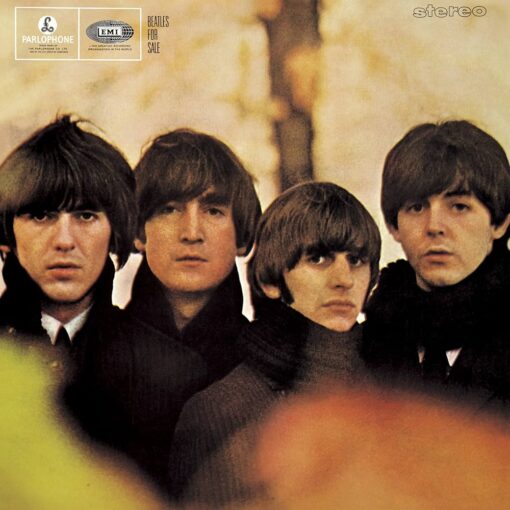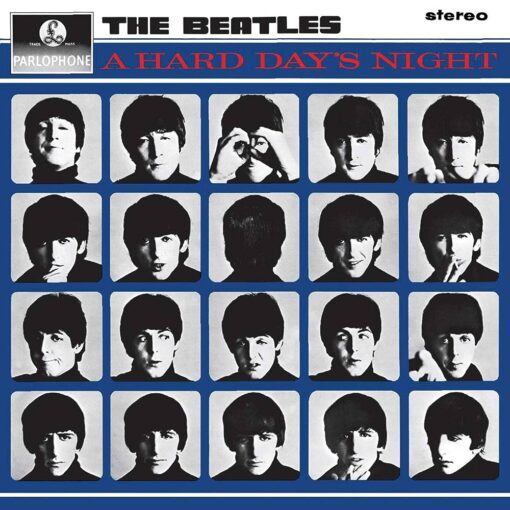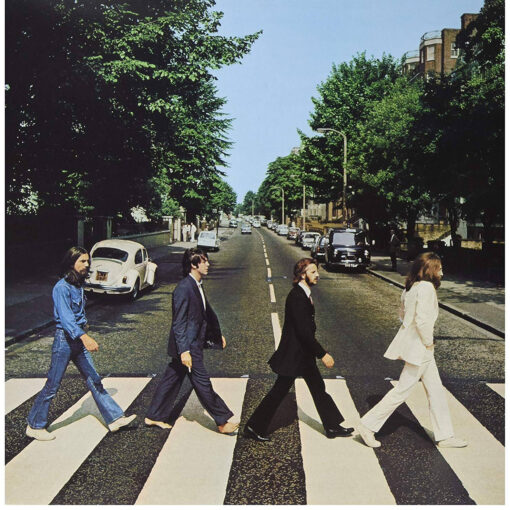- Published on 1968
- Author: Lennon/McCartney
- Track 15 on “The Beatles – White Album“
JOHN 1972: “Paul. One of his best.”
JOHN 1980: “That’s Paul. He even recorded it by himself in another room. That’s how it was getting in those days. We came in, and he’d made the whole record. Him drumming, him playing the piano, him singing. But he couldn’t… maybe he couldn’t make the break from the Beatles. I don’t know what it was, you know. I enjoyed the track. Still I can’t speak for George, but I was always hurt when Paul would knock something off without involving us. But that’s just the way it was then.”
PAUL 1981: “There’s only one incident I can think of, which John has publically mentioned. It was when I went off with Ringo and did ‘Why Don’t We Do It In The Road.’ It wasn’t a deliberate thing, John and George were tied up finishing something, and me and Ringo were free, just hanging around, so I said to Ringo, ‘Let’s go and do this.’ I did hear John some time later singing it. He liked the song, and I suppose he wanted to do it with me. It was a very John sort of song anyway. That’s why he liked it, I suppose. It was very John, the idea of it, not me. I wrote it as a ricochet off John.”
About “Why Don’t We Do it In The Road?”
“Why Don’t We Do It in the Road?” is featured on 968 double album, commonly known as “White Album.” Authored and performed by Paul McCartney, it is officially credited to Lennon–McCartney. With a duration of 1 minute and 42 seconds, the song follows a twelve-bar blues structure, marked by a unique blend of percussive elements and McCartney’s progressively lively vocals.
Background Inspiration struck McCartney in Rishikesh, India, during a retreat with the Maharishi Mahesh Yogi. Observing monkeys copulating in the street, he marveled at the simplicity of their natural act compared to the complexities of human relationships. Reflecting on the incident, McCartney noted the stark contrast between the ease of animal procreation and the challenges humans face.
When asked about the inspiration behind the song, McCartney humorously remarked in a 2001 interview with NPR’s Terry Gross that it likely stemmed from primal, sexual feelings.
Recording On October 9, 1968, while Lennon and Harrison worked on other tracks, McCartney recorded five takes of the song at EMI Studios. Initially, it started as an acoustic guitar piece, with McCartney alternating between gentle and assertive vocal styles. On this first night, McCartney played all the instruments himself. This version can be found on the Beatles’ Anthology 3.
The following day, McCartney and Ringo Starr completed the song, with Starr adding drums and handclaps, while McCartney contributed more vocals, bass guitar, and lead guitar. Lennon and Harrison were occupied with overseeing string overdubs for other tracks.
Lennon’s Reaction Upon learning that McCartney recorded the song without him, Lennon expressed dissatisfaction, feeling left out of the creative process. He discussed this in a 1980 interview with Playboy, expressing both enjoyment of the track and a sense of hurt that McCartney worked on it independently.
Legacy In a retrospective ranking of the White Album‘s tracks, Jacob Stolworthy of The Independent placed “Why Don’t We Do It in the Road?” at number 27. He noted it as essentially a Paul McCartney track, given that he recorded it alone, with its inspiration drawn from a vivid scene in India.
The song was later covered by American blues singer Lowell Fulson in 1969, featuring additional lyrics not present in the Beatles’ original version. This rendition was featured on the soundtrack of the 2007 film American Gangster.
Meaning of “Why Don’t We Do it In The Road?”
“Why Don’t We Do It in the Road?” is a song that carries multiple layers of meaning. On the surface, the title suggests a straightforward and suggestive proposition, evoking thoughts of intimacy. However, its deeper significance emerges from its origin. The song can be interpreted as a commentary on the uncomplicated nature of animal instincts in comparison to the complexities of human emotions, relationships, and societal norms. McCartney marvels at how animals engage in procreation without the baggage of human thought and societal constraints.
Metaphorically, the song could be advocating for spontaneity and living in the moment, without overthinking or worrying about consequences. It may encourage a carefree, unrestrained approach to life. Some listeners also interpret the song as a rebellious statement against societal norms and expectations, suggesting a desire to break free from conventional constraints.
Musically, the song represents a departure from the Beatles’ typical compositions. Its raw, bluesy style and repetitive lyrics signify a departure from their usual sophisticated arrangements, showcasing their willingness to experiment with different genres and styles. The fact that McCartney recorded the song by himself, playing all the instruments, could symbolize a desire for a more intimate, personal musical expression.
In essence, “Why Don’t We Do It in the Road?” is a song that invites a range of interpretations. Its meaning is subjective, shaped by McCartney’s inspiration from observing nature and his desire to capture a sense of simplicity and spontaneity, contributing to the song’s enigmatic appeal.
Personnel
- Paul McCartney – vocals, thumped acoustic guitar, piano, electric guitar, bass, handclaps
- Ringo Starr – drums, handclaps



